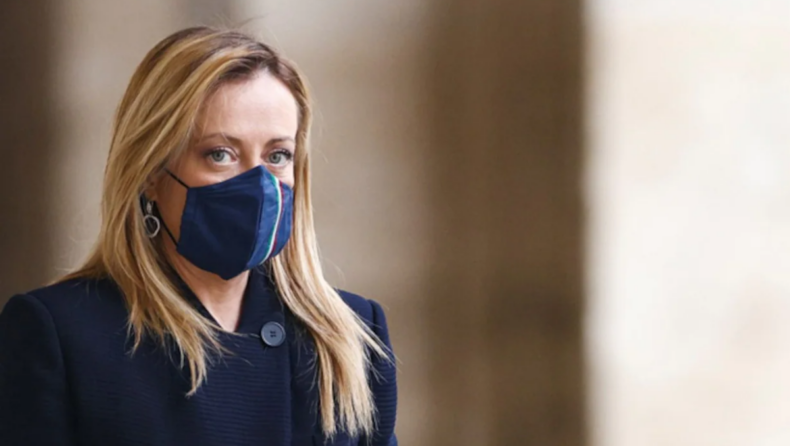In a recent turn of events, Italy has become a focal point of heated discussions surrounding victim-blaming and personal responsibility. The partner of Italy’s Prime Minister Georgia Meloni, Andrea Giambruno, has found themselves at the center of controversy after making comments that have rekindled debates about the treatment of sexual assault survivors. As the nation grapples with the aftermath, it is essential to delve into both the theories of victim-blaming and the factual details of the case.
THE INCIDENT
During his broadcast of the “Diario del giorno” show on the Rete 4 commercial station on a recent Monday evening, Giambruno delivered remarks that have ignited a significant wave of discussion. His comments revolved around the idea that individuals, particularly those engaging in social activities like dancing, have the right to enjoy themselves and even consume alcohol without apprehension. Giambruno’s perspective seemed to embrace the notion of personal freedom and enjoyment.
However, within the same dialogue, Giambruno introduced a perspective that shifted the narrative. He suggested that exercising caution by avoiding excessive alcohol consumption and maintaining one’s awareness could potentially act as a protective measure against certain challenges. In essence, he highlighted the concept of personal responsibility in ensuring one’s safety, particularly in social settings. Reuters reported on the event, bringing his statements into the spotlight.
What further contributed to the ongoing discourse was Giambruno’s alignment with Pietro Senaldi, the editor of the rightwing Libero newspaper. During the show, Senaldi asserted, “If you want to avoid rape, above all don’t lose consciousness, keep your wits about you.” Giambruno appeared to echo this sentiment by endorsing the idea that remaining conscious and alert could serve as a precaution against potential dangers.
The resonance of Giambruno’s comments and his alignment with Senaldi’s viewpoint reverberated beyond the television studio. The Guardian reported on this significant development, capturing the essence of the conversation and its implications. The alignment between these influential figures brings to the forefront a discussion that’s far from new – the balance between personal autonomy and the measures one might take to safeguard themselves in various situations.
Critics of Giambruno’s perspective argue that while advocating for personal responsibility is not inherently wrong, the discourse tends to shift the onus onto potential victims of harm, rather than addressing the larger societal issue of consent, respect, and accountability. This perspective often gets framed under the umbrella term “victim-blaming,” where the focus shifts from the perpetrator’s actions to the victim’s behaviors or choices.
THE OPPOSITIONS TAKE ON THE SAME
Giambruno’s comments have drawn the ire of opposition leaders in the country, who have vehemently criticized his remarks as being both “unacceptable and shameful.” Leading figures from the opposition, including Cecilia D’Elia, a senator representing the center-left Democratic party (PD), have publicly condemned Giambruno’s statements. D’Elia expressed a sentiment shared by many, stating, “It appears they cannot resist the inclination to assign blame to women. The admonitions to not go out alone, avoid dimly lit areas, and refrain from provocative attire have reached a point where they are no longer tolerable.”
D’Elia further articulated her stance by asserting, “If a young woman overindulges in drinking, the consequence should be nothing more than a headache, not the traumatic experience of rape.” She urged Giorgia Meloni, leader of the opposition and Giambruno’s partner, to dissociate herself from his remarks and to clarify the party’s position on the matter.
This vocal opposition highlights the broader societal conversation that Giambruno’s comments have reignited – a conversation that delves into the nuances of victim-blaming, the role of personal responsibility, and the imperative of fostering a culture of respect and empathy.
The incident surrounding Giambruno’s remarks underscores the complex nature of discussions related to personal responsibility, safety, and victim-blaming. It brings into the limelight the challenge of promoting individual autonomy while maintaining empathy and understanding for survivors of various forms of harm. As the conversation continues, society grapples with striking the right balance between encouraging prudent behavior and fostering an environment that doesn’t inadvertently perpetuate harmful narratives or shift accountability away from those responsible for harm.
THE DEFENCE
Giambruno has stated that if he had made an incorrect statement, he would have apologized. However, that’s not the situation, and he asserted that he would never allow a politician to dictate his words.
“I said rape is an abominable act. I took the liberty of telling young people not to go out on purpose to get drunk and do drugs.” According to him, He had offered advice for everyone to remain cautious, citing the unfortunate reality of the continual existence of individuals with malicious motives in the world. At no point did he insinuate any justification for men to engage in the reprehensible act of assaulting women who may be inebriated. His intention was solely to underscore the importance of being vigilant and fostering a safe environment for everyone.
In an era where conversations about consent, respect, and safety are evolving, moments like these serve as crucial points of reflection. They push us to collectively consider the language we use, the perspectives we endorse, and the broader impact our words and ideas have on shaping a safer and more equitable society.













